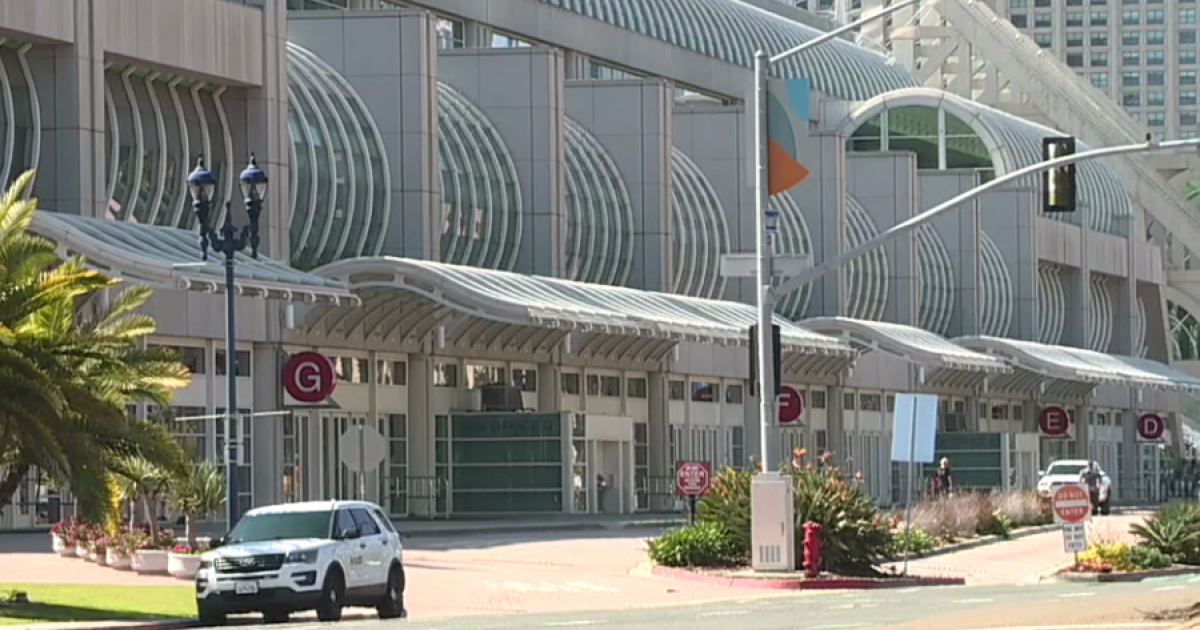SAN DIEGO (CNS) – Hospitality workers in San Diego could see a significant pay raise in the near future, with a City Council committee Wednesday to discuss raising the minimum wage to $25 an hour.
Proposed by Councilman Sean Elo-Rivera, chair of the Select Committee on Addressing Cost of Living, the proposed increase would need to make it through committee and then the full City Council. It would include hospitality workers at amusement parks, event centers, hotels with at least 150 rooms and zoos.
“This proposal follows similar actions in Los Angeles and Long Beach, and the goal of the ordinance is to address the cost of living by paying workers more,” a document from Elo-Rivera’s office said. “Workers’ labor is what creates the value that drives corporate profits and that provides the foundation for our local economy.”
Since the council adopted the Earned Sick Leave and Minimum Wage Ordinance in 2016, minimum wage within the city’s boundaries has increased from $10.50 to $17.25 — higher than California’s $16.50 hourly rate and far higher than the nation’s $7.25 per hour mark.
However, the cost of living in San Diego has increased independently of the minimum wage. According to the Massachusetts Institute of Technology’s Living Wage Calculator, a single person would need to earn $30.71 per hour in San Diego County to support themselves while working full-time. A two-adult and one-child household would need to earn $49.13 per hour by the same calculator.
Business leaders spoke out Tuesday in opposition of the proposal, both due to impact on employers and the way some industries are picked over others.
“This proposed $25 wage mandate is reckless and economically irresponsible,” said Chris Cate, president and CEO of the San Diego Regional Chamber of Commerce and a former city councilman. “It will kill jobs, shut down businesses and non-profits, and increase the cost of living for San Diego families.
“Under this proposal, the city of San Diego will exempt themselves from having to pay this wage to its own employees because it knows it’s unaffordable. Pushing this burden onto our businesses is hypocritical and dangerous. We need policies that support job growth, not proposals that make San Diego even more unaffordable.”
The proposal claims the hospitality industry is given ample financial support from the city and would be able to support its workers. Among this support is $62 million for the San Diego Tourism Marketing District, a “zoo tax” property tax assessment akin to subsidizing the San Diego Zoo by nearly $21 million annually, and no additional charge for public amenities.
“These expenditures support the hospitality industry and tourism and entertainment activities, with the rationale being that these investments result in greater returns in sales tax and transient occupancy tax receipts,” the document from Elo-Rivera’s office said. “These in turn support general city programs and services. This gives the city an interest in the competitiveness of the hospitality industry, and a part of that is creating the conditions for a skilled and experienced workforce.”
A beloved San Diego institution didn’t buy that argument.
“The Padres are proud to be a major economic contributor and a committed community partner,” said Caroline Perry, chief operating officer of the San Diego Padres. “We pay the highest mandated wage in Major League Baseball through the city’s Living Wage Ordinance, which adjusts annually for inflation.
“We believe in fair, competitive wages, but this proposal is too extreme. It would drive up the cost of living, make it harder for San Diegans to attend games, and hurt the local businesses that rely on Petco Park. We urge the City Council to reject it.”
The Padres broke their single-season franchise attendance record in 2024, drawing 3,314,593 fans to Petco Park. The franchise is valued at $1.95 billion, more than triple what the late Peter Seidler paid for the team in 2012, according to Forbes.
Steve Pinard of Action Sports Rentals said his small business would not survive the change. Sara Arjmand of the California Restaurant Association’s San Diego chapter said it would cause restaurants to either cut hours or increase prices, possibly both.
Elo-Rivera’s office noted that costs continue to rise across the city even without significant minimum wage increases.
“San Diego is one of the most expensive places in the U.S., and the hospitality industry is one of the largest economic sectors in the region,” the document reads. “Hospitality workers earning the minimum wage should not be struggling to survive in San Diego, as these workers are the face of our city, greeting and serving visitors. San Diego should work for San Diegans, and improving workers’ pay would move the city closer to that vision.”
Copyright 2025, City News Service, Inc.
